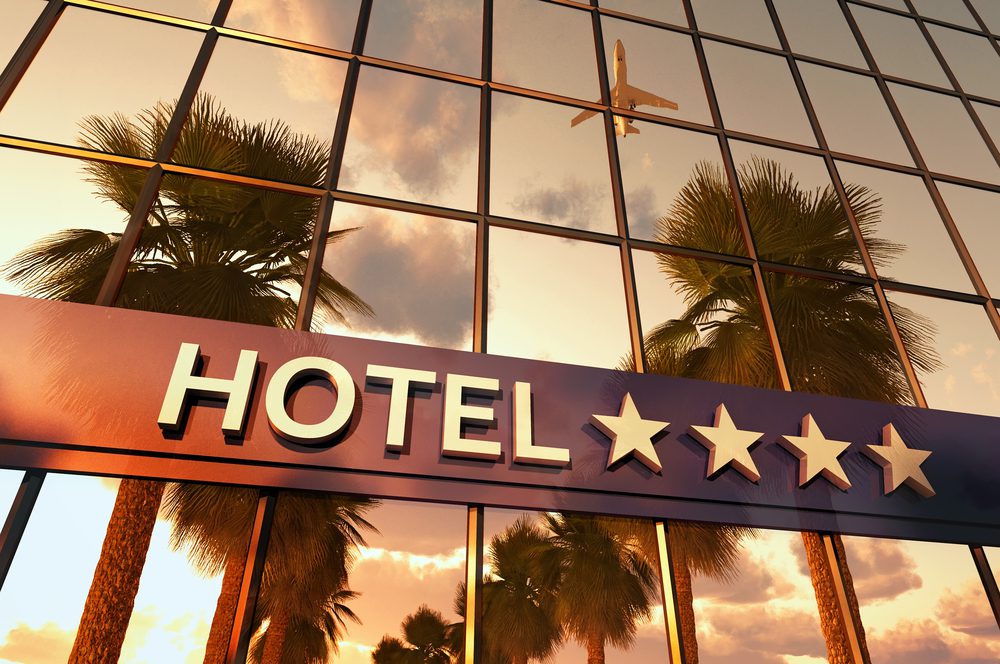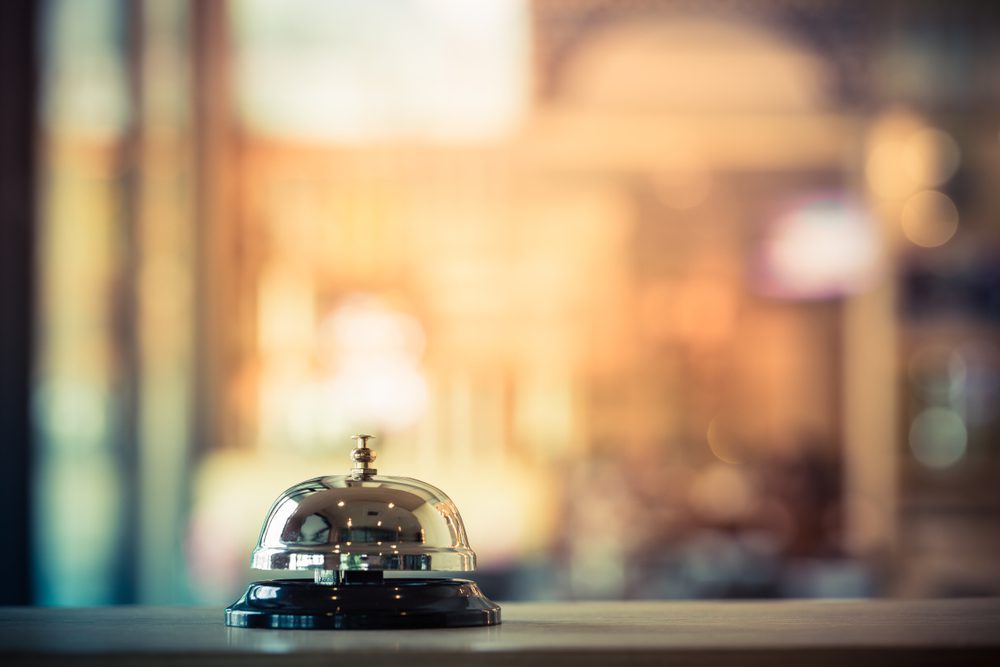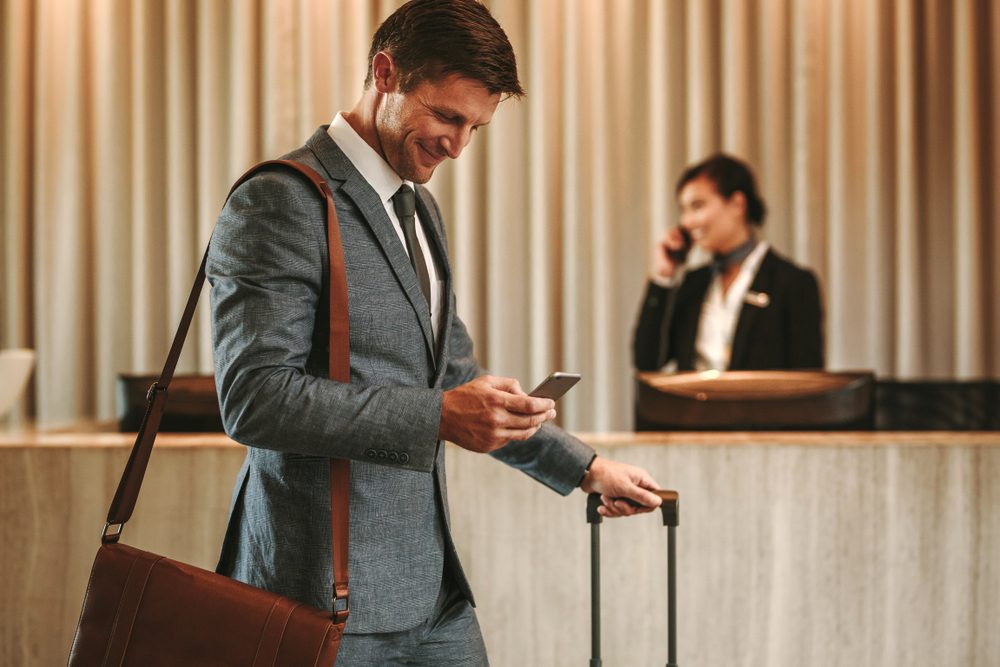
The coronavirus pandemic has changed our lives and we need to adjust to these changes in order to stay safe and keep others safe as well. If booking a hotel was about dates, availability, and amenities, now there’s more to the story.
According to the Centers for Disease Control and Prevention, COVID-19 has killed more than 150.000 people in the United States, and those who didn’t die might experience several medical issues such as intense fatigue, brain fog, and trouble breathing. To be clear, staying home is still the best option for your health right now and for those you’ll come in contact before, during and after travel.
Of course, there are people who prefer not to travel this summer, but for those who still want to go somewhere in spite of the ongoing pandemic, whether it’s for work or vacation, there are some things you should always consider if you prioritize your safety. And don’t get me wrong, after months of lockdowns, it’s normal to want to stretch your legs a bit and see something other than a television screen. People want to be free and live their lives without any restrictions, but unfortunately, that’s not possible in this context.
As everything around us changed over the last few months, so has the simple process of booking a hotel, and there are many things you should consider now, that you probably didn’t even think before this pandemic. Before booking a hotel for your trip, make sure you know everything there is to know about that place you are visiting, and I don’t just mean the hotel itself, it’s also important to know how the situation is going in that state, how many new cases there are per day and what safety measures are in place. Nevertheless, hotels need to demonstrate as well that they can create a safe environment without putting their guests in danger.
“Be aware of your state’s and other states’ quarantine regulations. It may not be worth it to you to travel someplace and find yourself under quarantine there for 14 days or under quarantine when you’re back home. Also, be aware of local coronavirus rates. This dashboard makes it pretty easy to assess levels of risk by county. Don’t travel to or from counties in red. Don’t travel between places with mismatched level of risk (i.e., from yellow to green counties or from green to yellow counties),” explains Celine Gounder, M.D.
We’re living harsh times right now, and details matter more than ever, from health and safety measures, cancellation policies, social-distancing, mask mandates and layouts, everything is essential. Thankfully, many hotels around the world understand your concerns and are easing restrictions.
Is it safe to stay in a hotel right now?
“The first thing that potentially opens up risk is running into other people that you have no idea what their infectious status is. We know now that there’s a lot of people who get the coronavirus who have no symptoms at all, who could potentially transmit it,” explains Dr. Thomas Russo, chief of the division of infectious disease at the University at Buffalo.
He adds, “And we also know that people could potentially transmit the virus perhaps as many as six days prior to developing symptoms. So just because people are feeling well and circulating in society doesn’t mean that they couldn’t potentially be infectious. Therefore you have to assume that anyone you encounter that you don’t know could be potentially infectious.”

Search for hotels that have flexible cancellation policies
This is very important, no matter where you choose to travel. As coronavirus cases can dramatically increase from one day to another, it’s crucial to have the possibility to cancel your reservation without losing your money.
Moreover, to make life easier for their clients, many hotel chains have implemented emergency coronavirus change and cancellation policies. So make sure that you know all the details about these policies because every hotel will have different ones.
Additionally, booking directly with the hotel is the safest way to make sure that you’ll get your money back in case you need to cancel, says Miguel Diaz, area director of sales and marketing for Wyndham Grand Clearwater Beach in Florida.
Visit a hotel’s website before booking your stay
It’s also important to visit a hotel’s website directly, rather than choosing travel agencies or booking sites. “The local property team knows their hotel better than anyone, as well as any local ordinances that exist in the city or town,” says Thom Geshay, president of Davidson Hotels & Resorts.
Booking sites do not always offer information about aspects like hotel’s cleanliness standards, so chances are you might not know exactly what you’re getting. If you’re worried about the price, many hotels have special offers right now for travelers, which are only through their own websites, Geshay adds.
Review cleaning policies
Experts suggest that now more than ever, you need to make sure the hotel you’re planning on staying in has protocols put in place in order to keep you safe during your trip. Every respectable hotel should offer information about the measures they’re taking to keep their clients healthy, on their websites.
If you can’t find these kinds of information on their websites, that’s a red flag. Hilton, for example, through the CleanStay program has put in place a strict cleaning schedule, making sure that everything is sanitized, from railings to elevator buttons. And that’s just one of the reasons the Hilton in Hasbrouck Heights, New Jersey, is one of the cleanest hotels in America according to travel agents.
“If your health is important to you, make sure the hotel you choose is taking it just as seriously,” says Frank Cavella, director of sales and marketing at Conrad Fort Lauderdale Beach in Florida.

Know your budget
Expensive is not always cleaner, but sometimes it can be. Geshay suggests choosing hotels that are professionally managed since the new cleanliness standards are not only more strict but also costly. “Less sophisticated managers and properties tend to cut corners to save expenses,” he adds. “To be comfortable traveling now, don’t just look for the cheapest price.”
Consider staying a little longer
Especially when talking about far-from-home destinations that require flying to get there, make use of the time spent in the airport and on the plane by staying a little longer than you would normally do, of course, if your budget allows.
According to Simon Rodrigues, director of sales and marketing, guests at Chatham Bars Inn in Cape Cod, Massachusetts are extending their stay, with two or three nights after they arrive and see that they actually feel comfortable and safe.
Ask about staff requirements
No, you’re not crazy calling a hotel and asking about its cleaning protocols before deciding to book your stay there. It’s ok to ask about whether or not their employees are required to wear masks and/or gloves or if they’re temperature is being checked before arriving at work, suggests Ron Pohl, COO with Best Western Hotels & Resorts.
You can also ask about how they managed the normal high-touch procedures, like guest check-in and luggage handling.

Take a look at the hotel’s design
You can easily find photos on a hotel’s website or Instagram page, where you can get a sense of how the hotel is laid out and what common spaces look like. And that’s not just to see if you like the design, but more because you should know if it offers a variety of wide, open spaces, or large outdoor areas where social distancing measures can be implemented, explains Mika White, cofounder of the Japan Tourism Exchange.
It would be preferable to choose a boutique hotel or a resort that offers separate accommodations if you want to limit as much as possible your interaction with others while staying there.
Go by car if possible
“The safest travel option is not to travel. If you do travel, a road trip is the safest because you’re not sharing space with someone the way you do on a bus, in a train, in an airport, or on a plane.
One option is to rent an R.V. or go camping. The general guidance is to stay six-plus feet away from anyone not in your household bubble, wear a mask when outside your vehicle, use lots of hand sanitizer, don’t dine indoors, and avoid crowds,” explains Celine Gounder, M.D.
There’s no other option safer than traveling by car. If your destination is not too far away, consider going there by car in order to stay safe and keep your family safe. You can also consider choosing a destination withing a driving distance that’s also off the beaten path.
“By skipping the crowded hot spots and visiting destinations that offer activities that can be done while social distancing, travelers [can get] the opportunity to reconnect with nature by way of hiking, swimming, fishing, and more,” says Gregory Henderson, co-owner of The Roxbury at Stratton Falls, a quirky, boutique hotel nestled in the quiet Catskills in New York.
Don’t forget to download hotel apps
After finding the perfect hotel that meets all your requests, make sure you don’t forget to download its app on your smartphone. This app will help you find answers to some of the questions you might have. Could you request more towels via app? Could you order food via app?
The more options available through the app, the safer it will be for you, as you won’t have to get in contact with so many people while staying there. You can also look for other contactless features like mobile key cards, payments, and checkout, says White.

Do your research regarding that area
With things changing rapidly from one day to another, it’s impossible to keep up with the status of restaurants, museums, businesses and other activities you might consider doing, says Cavella.
Moreover, you need to do your research twice. First, before booking the hotel, and secondly, before arrival, to check if there haven’t been any unexpected changes.
Amid shifting county mandates, it’s hard to keep up with the status of restaurants, museums, and other businesses and activities, says Cavella. Be sure to do your homework in advance of booking—and then again before arrival—if you’re considering a particular hotel for its proximity to an attraction you really want to visit. The openings (and closures) in the area will be out of a hotel’s control.
Doing your homework before travel is especially important if you want to avoid disappointment. For instance, if you choose a specific hotel because it is close to the beach, and you get there only to find out the beach is close, chances are you’ll end up disappointed.
Choose outdoor activities
“If you don’t interact with anyone, you’re not going to get infected. But we can’t carry on with life [in quarantine] forever, right?” he says. “If you’re going to put yourself in situations where you’re going to increase your risk, you should choose wisely. What are those activities that are most necessary and most important to you?” Dr. Russo says.
After quarantine and lockdown measures, I assume you don’t want to spend your whole vacation staying indoors. That’s why it important to check what outdoor activities your hotel has to offer, for both children and adults if you’re traveling with your whole family, says Sean Copley, general manager at The Bristol Hotel in Virginia.
In addition, you can choose a hotel near national parks, near the beach or bodies of water for fishing and boating, mountains for hiking and others.
Keep an open mind
Also, be prepared that things might be a lot different now compared to before. “While the travel industry is doing our best to maintain the luxury experience we’re known for, things have changed,” says Cavella.
With social distancing measures being implemented in hotels and employees wearing masks, it’s hard to provide warm, personalized service, but hotel employees are trying their best to make their clients feel welcome and safe.























